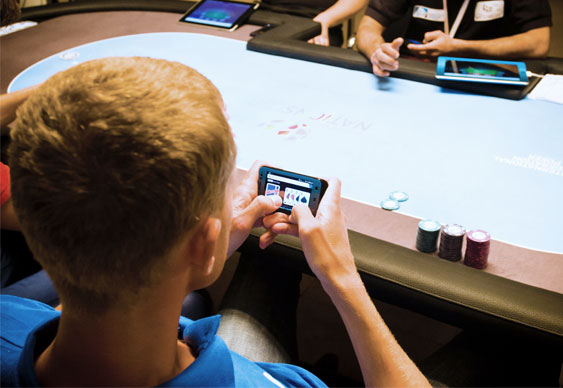European Nations Cup
Saturday, 1 June 2013
Who's the best in Europe?
Which European nation is truly best at the poker? After an experiment in Cyprus, the International Poker Federation believes it has the answer. Stephen Bartley was there to pore over the results.
An event held in a five-star hotel with panoramic views of the sea, great food, great service, with each player’s suite paid for in advance. Yes, it might just be that the International Federation of Poker is on to something.
There was more good news, as the new President of the IFP Patrick Nally made clear. After a long career working in sports marketing, poker, he was surprised to discover, was the only pursuit in which the players had to pay to compete, and in which any money made in profit was taken from them. It was a point of logic that clicked in the minds of the assembled players like the attendees of a self-help group who had just been assured they deserved to be loved.
But this is all part of the plan for the IFP, an organisation with latent potential as the world governing body of poker, which intends to transform how the world views the game – a challenging mind sport rather than grubby gambling game. Getting a hundred players to Paphos, Cyprus, putting them up in style and explaining its intention was just the next phase of that plan.
They were here to compete in the 2013 European Nations Cup, a unique team event using Match Poker, which the IFP believes will showcase the skill required in poker, as opposed to the luck.
If you’re new to Match Poker the concept is simple. Each player is dealt identical cards to the player sitting in the same seat on every other table. In essence ENC players were competing against the players at their table – made up of a member of a different national team – but also against everyone in their corresponding seat.
To manage all this, the ENC would be played on smartphones, with each action by each player recorded and allocated points over four sessions of play. Not only would this then determine a winner but it would also produce a report several inches thick full of statistics relating to every hand, every showdown and every decision a player made, compared to the others in the exact same spot. It would show that good players beat bad players and that skill had the edge over chance.
It’s noble work. The problem is that in the past this kind of information has proved awkward to get.
The last effort had been a disaster, at 300 feet, to be exact, in the pods of the London Eye, back in 2011. The plan had been the same but the compilation of results more prone to human error. After champagne, poker and a spectacular view of London, players returned to earth to pore over results, only to land with a bump. A misplaced button had ruined everything.
This time those potential errors were taken over by technology. It didn’t look pretty, and the hired dealers soon grasped that they had become overnight IT technicians, but it was the best way of eradicating the mistakes of before.

Now, with a new way of doing things, it seems the IFP may just have cracked it. Not that there weren’t a few teething problems. Back in 2011 the IFP had seemed like space pioneers in white coats, with rockets that exploded after comic U-turns. The frontier they aimed to breach seemed forever out of reach. In Paphos the start was eerily familiar.
The first session, scheduled for 100 hands, was cut back to 66 after players, taking time to get used to the system of play, progressed at a slower pace. Then there was that old enemy the button to contend with, which buggered up points on one table, ruling out a good swathe of results.
But the people in charge, who still adopt a foetal position when 2011 is mentioned, had allowed for this, smoothing out the bumps with the consent of players who were gradually getting into the swing of things, for the real draw of Match Poker is not what happens during play, but when play stops.
Whatever the debate about whether Match Poker really is show poker in its purest form – and many supporters of Match poker disagree (there will always be tactics that overrule standard play) – its strength lies in the interaction between players between sessions. Teams eagerly gathered together to pore over a session’s results. It was hard to fathom how the likes of
Ivan Demidov and Andrey Pateychuk, Dermot Blain and Eoghan O’Dea, Barny Boatman and Neil Channing could be so enthralled by what was essentially a play-money tournament. But part of that was down to the fascination with the figures they had before them.
Ireland eventually ran out winners, having been in the top two positions for most of the weekend, with numbers to prove it. It was with genuine delight that they collected the trophy, qualifying along with Russia, Spain, United Kingdom, Estonia and Cyprus for the Nations Cup finals later this year – venue yet to be determined.
As
Padraig Parkinson put it when collecting the winner’s trophy, at a well-lubricated reception afterwards, “They said the modern game is not what it was years ago. Well they’re wrong.”
Parkinson might be right, particularly if the technology keeps improving, which the IFP hopes to ensure. The IFP as a project is still a work in progress, but with more than 50 National Federations already under its umbrella, and some high profile players keen to get involved, it continues to find a dynamic part to play.
Check out the stats yourself on the
pokerfed.org website.